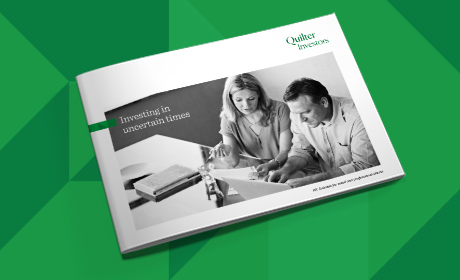Investments
Recent fluctuations in global equity markets following the US decision to pause tariffs for most countries - but not China - highlight the sensitivity of investors to geopolitical developments. Although signs of diplomatic flexibility are encouraging, the continued high tariffs on Chinese goods pose risks to corporate profits and broader economic stability. This situation should remind investors that market sentiment can shift quickly, and staying invested through uncertainty can often be more rewarding than trying to predict market movements.
Investors should remain calm amid volatility and ensure their portfolios are diversified across regions and asset classes. Knee-jerk reactions rarely serve long-term goals. This period demonstrates why staying invested and maintaining a long-term perspective can often yield better outcomes than attempting to time the market.
Pensions and annuities
While markets have partially recovered following the recent tariff pause announcement, it would be premature to assume that volatility is over. Pension pots, often heavily invested in equities and bonds, remain exposed to global market movements, and further swings in sentiment are possible. Those nearing retirement may see their pension values fluctuate more than expected and should consider whether their portfolios reflect an appropriate level of risk given the uncertainty.
Annuity rates, closely tied to long-term gilt yields, may also face downward pressure if rate cuts are used to cushion the economic impact of tariffs. For those considering converting pension savings into a guaranteed income, timing will be key. Professional financial advice can help ensure retirement plans remain on track, even as the external environment shifts.
Credit cards and debt
If interest rates fall in response to tariff-induced economic weakness, borrowers may see modest reductions in the cost of credit. However, lenders are cautious in this environment and may not pass on the full benefits. Now is a good time to assess any outstanding credit card debt, consider transferring balances to 0% deals if available, or consolidate debt while rates are relatively favourable.
Economic context
The US decision to pause reciprocal tariffs for most countries - while sharply increasing them on Chinese imports - has added a fresh layer of uncertainty to the global economic outlook. Markets have responded with dramatic swings, reflecting both relief at signs of pragmatism and concern over the potential for a deeper trade rift between the world’s two largest economies. For households, the implications are wide-ranging, with prices on goods likely to rise, while broader market volatility can affect pensions, ISAs, and investment portfolios.
This geopolitical unpredictability underscores the importance of having a resilient financial plan. This means ensuring your investments are diversified across regions, keeping your emergency fund topped up, and reviewing significant financial decisions like locking in mortgage rates or drawing retirement income in light of market conditions. While governments set trade policy, individuals often absorb the shock. The best approach is to stay informed, stay flexible, and stay focused on long-term goals.
By staying proactive and seeking professional advice, you can navigate these uncertain times and make informed decisions to protect and grow your personal finances.

